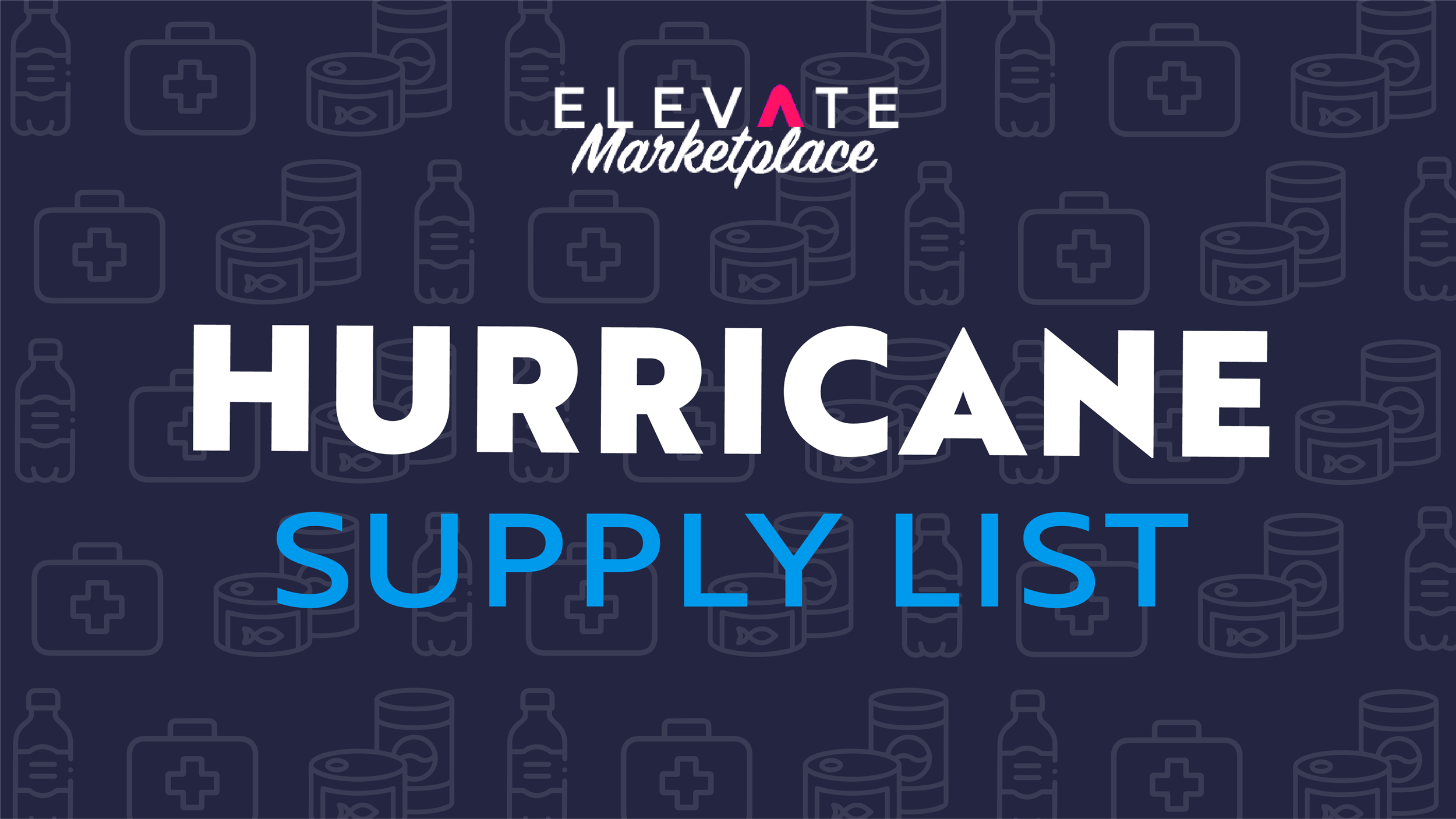
How to Prepare for a Hurricane: Supply List and Strategy
Hurricanes are a natural disaster that can be dangerous either on the coast or hundreds of miles inland. While it’s important for everyone to be safe no matter where they live, people in highly at-risk areas need to be especially prepared.
With a bit of planning, you and your family can be prepared to face the storm and what comes after. Use this hurricane supply list and strategy guide to help you gather and prepare the supplies you need in the event of a hurricane. It will cover basic hurricane supplies, as well as additional items you may not have expected to need.
Priority Supplies
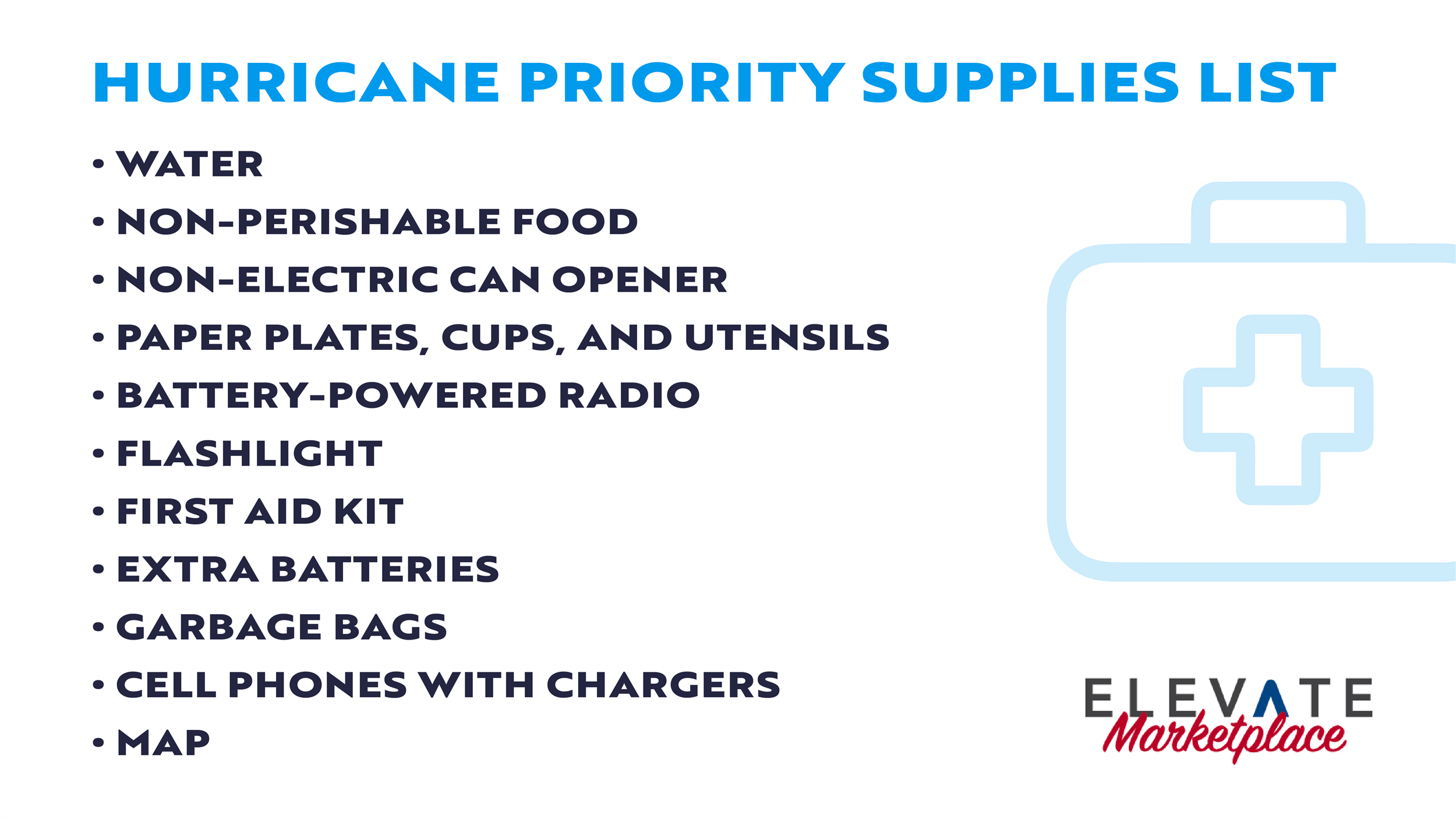
These items should be at the top of your preparation list when readying your emergency supplies and will be the most important when it comes to enduring the hurricane.
- Water
- Non-perishable food
- Non-electric can opener
- Paper plates, cups, and utensils
- Battery-powered radio
- Flashlight
- First aid kit
- Extra batteries
- Garbage bags
- Cell phones with chargers
- Map
- If you or anyone in your family has prescription medications, keep them in an easy to reach and organized location
- If possible, keep a spare set of prescription glasses or lenses on hand
Secondary Supplies
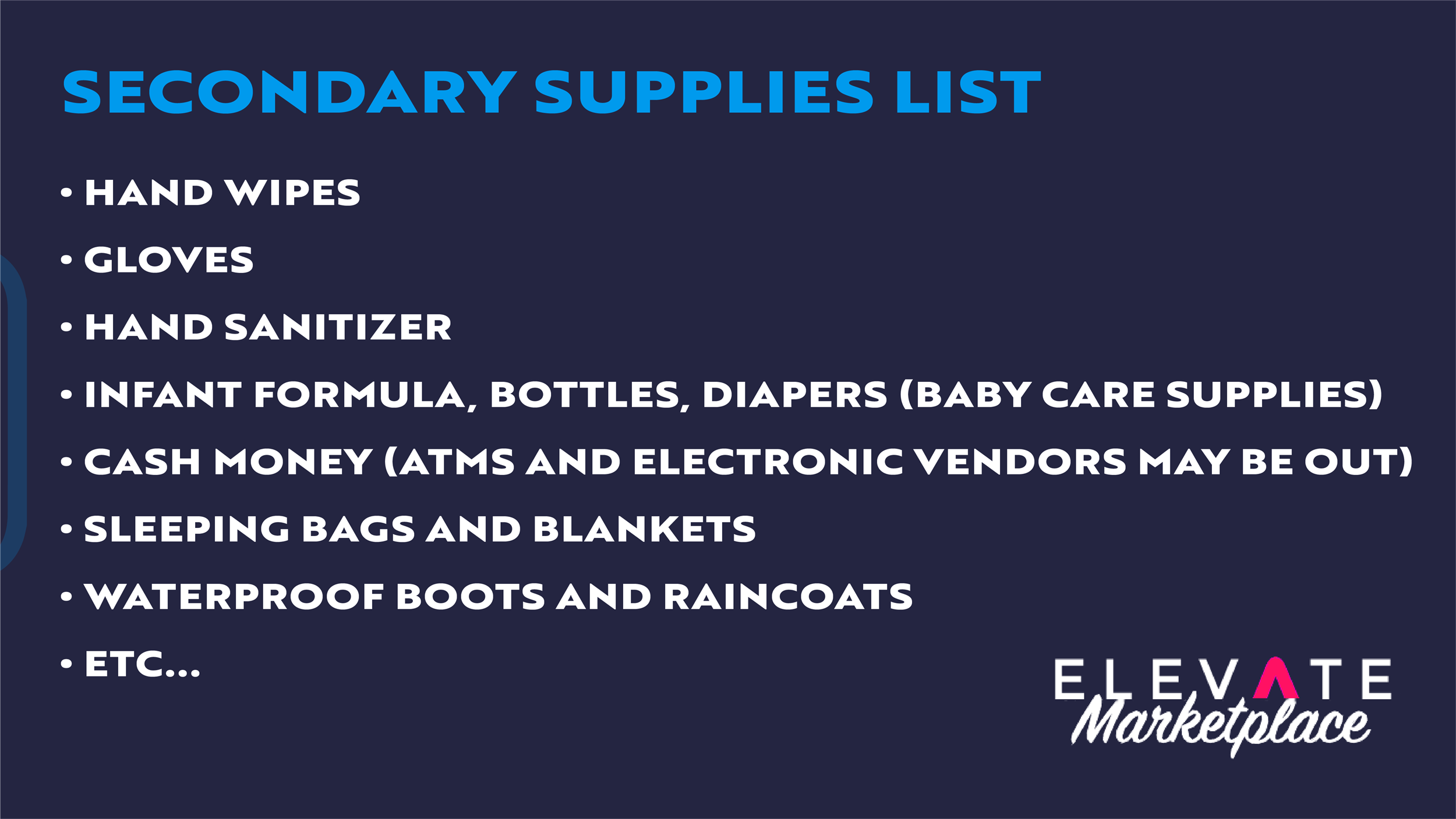
These items are still important to your survival, but should be gathered after the priority items are taken care of.
- Hand wipes
- Gloves
- Hand Sanitizer
- Infant formula, bottles, diapers (baby care supplies)
- Cash money (ATMs and electronic vendors may be out)
- Sleeping bags and blankets
- Waterproof boots and raincoats
- If need be, keep important family documents like bank account records, insurance policies, etc. in waterproof, portable containers
- Also keep sources of entertainment on hand for children, like books, puzzles, games, and toys
Hurricane Survival Strategy
Having a plan in place for a hurricane can be the difference between safety and disaster for you and your family. Even if it’s as simple as having your supplies in an easy to access location, it is essential to take steps to make sure you aren’t caught off guard.
Before the Hurricane
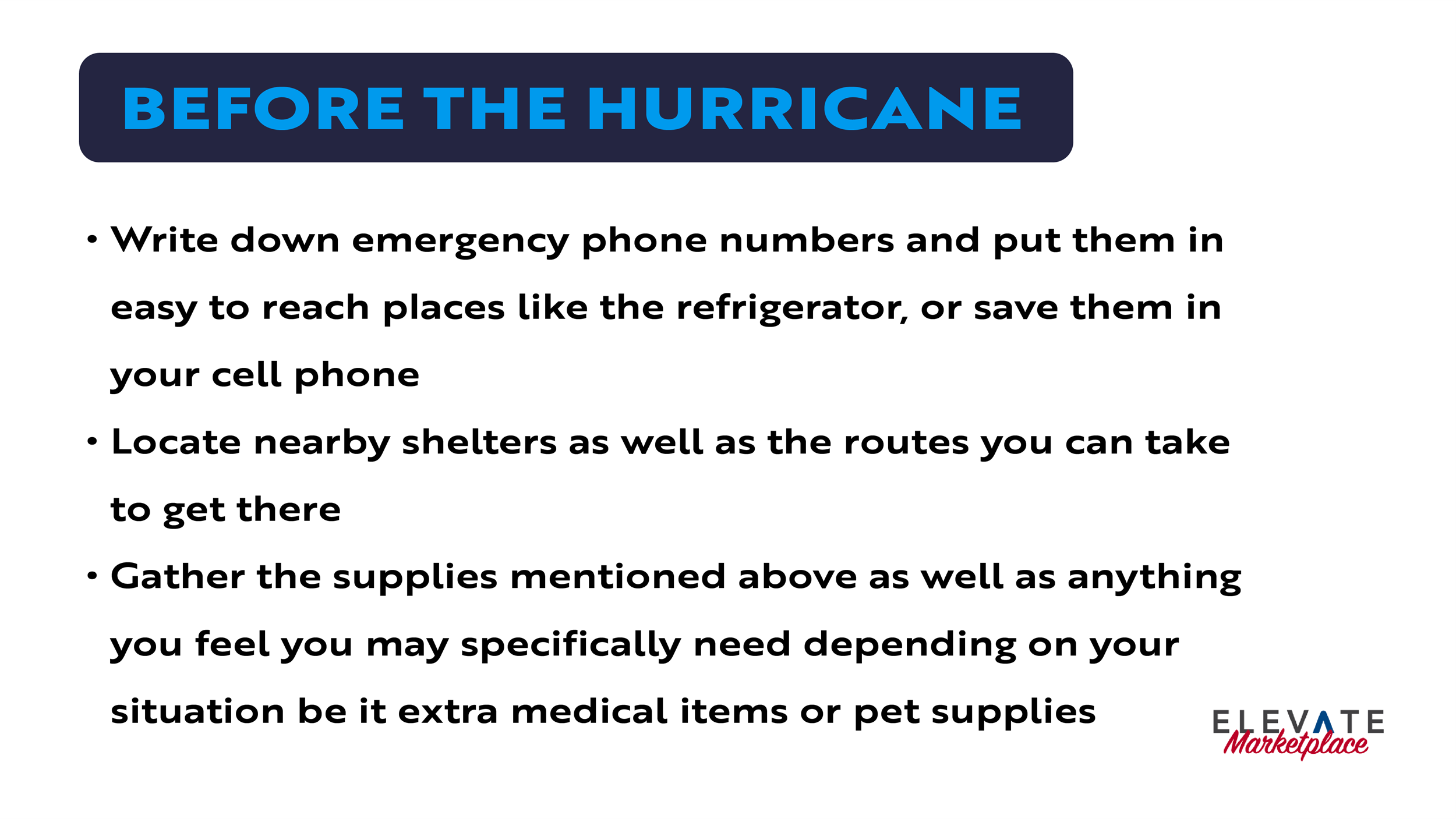
- Write down emergency phone numbers and put them in easy to reach places like the refrigerator, or save them in your cell phone
- Locate nearby shelters as well as the routes you can take to get there
- Gather the supplies mentioned above as well as anything you feel you may specifically need depending on your situation be it extra medical items or pet supplies
- Businesses need to be aware of special precautions to take during hurricanes, such as:
- Knowing your hurricane evacuation level and FEMA flood maps will help you know whether or not your business is at risk from storm surges and freshwater floods
- Have your business inspected to make sure it isn't vulnerable to hurricane force winds
- Cover your windows and move all at risk equipment and furniture(anything expensive or easily movable) to a secure location
- Keep emergency supplies stocked at the office
- Create and discuss a hurricane plan for your employees to learn
- Review your insurance coverage and make sure to have your business appraised every five years
- Take inventory of everything you have before the story hits, and take pictures of the workplace before the storm hits
- Back up any and all important files and secure them in a safe location
- Inform employees and customers about your plans for the arrival of the storm
During the Hurricane
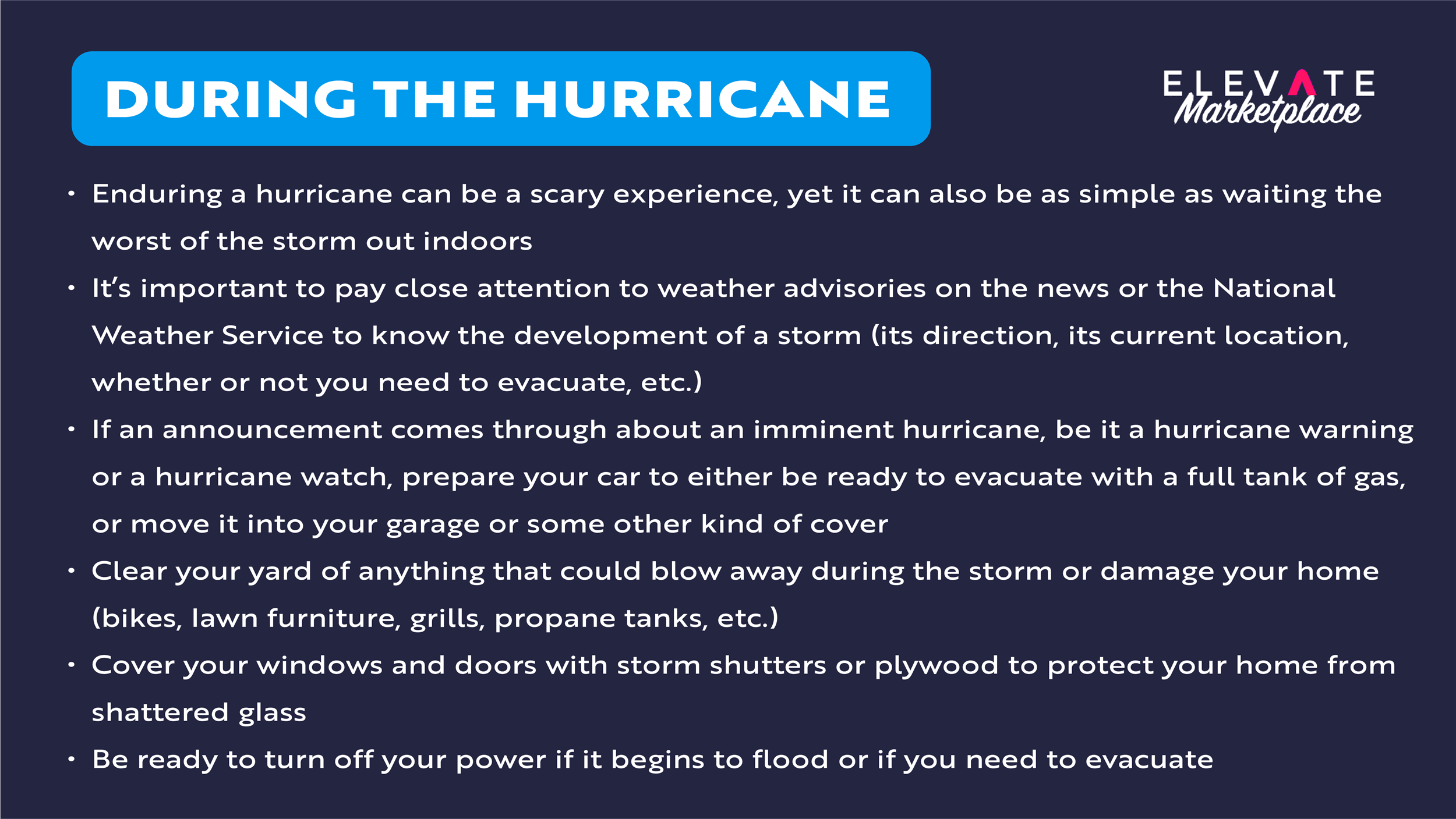
- Enduring a hurricane can be a scary experience, yet it can also be as simple as waiting the worst of the storm out indoors
- It’s important to pay close attention to weather advisories on the news or the National Weather Service to know the development of a storm (its direction, its current location, whether or not you need to evacuate, etc.)
- If an announcement comes through about an imminent hurricane, be it a hurricane warning or a hurricane watch, prepare your car to either be ready to evacuate with a full tank of gas, or move it into your garage or some other kind of cover
- Clear your yard of anything that could blow away during the storm or damage your home (bikes, lawn furniture, grills, propane tanks, etc.)
- Cover your windows and doors with storm shutters or plywood to protect your home from shattered glass
- Be ready to turn off your power if it begins to flood or if you need to evacuate
- When the storm hits, businesses will need to stay aware and consider the following steps:
- Keep a close eye on weather reports and be prepared to evacuate if the need arises
- Be sure to follow your emergency plan as accurately as possible to minimize confusion
- If flooding is imminent, shut off the electricity at the main breaker
- If power is lost, turning off major appliences will reduce damage
After a Hurricane
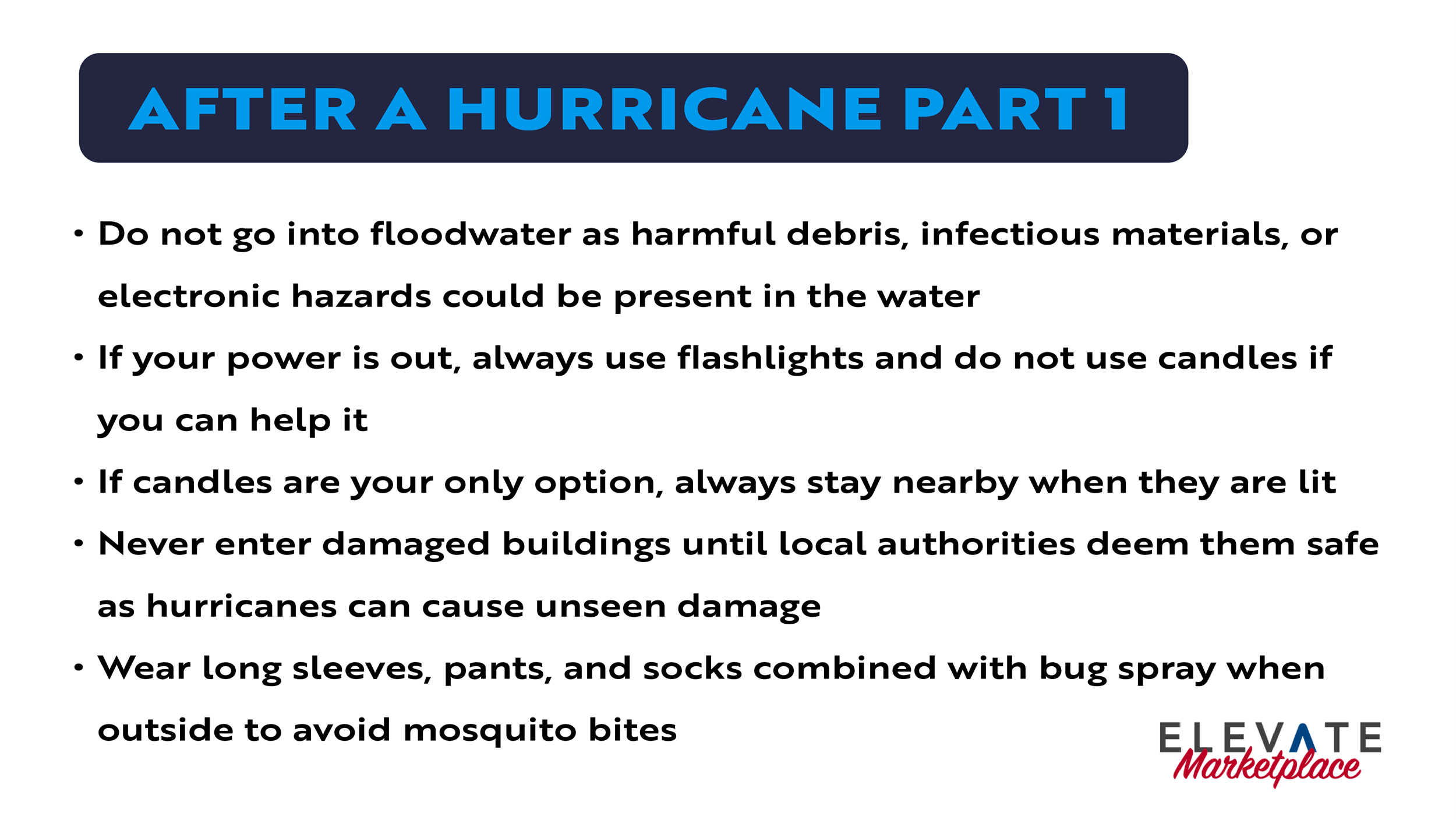
- Do not go into floodwater as harmful debris, infectious materials, or electronic hazards could be present in the water
- If your power is out, always use flashlights and do not use candles if you can help it
- If candles are your only option, always stay nearby when they are lit
- Never enter damaged buildings until local authorities deem them safe as hurricanes can cause unseen damage
- Wear long sleeves, pants, and socks combined with bug spray when outside to avoid mosquito bites
- Report all dead animals to local authorities
- When returning home, if you have no standing water, safely turn off your power and begin cleaning
- Have an electrician check your electrical system before turning your house’s power back on
- If you do have standing water, call an electrician to turn your power on or off until area is completely dry
- If you suspect a gas leak, safely turn off the main valve, open all windows, and immediately leave your house before contacting the authorities
- Throw out all food and drinks that came in contact with floodwater as they have been contaminated
- Businesses will need to go over the following points in order to ensure safe post-storm precautions are taken
- If your workplace was directly impacted by the storm (broken glass, flooding, power outage, etc), do not re-enter without a proper inspection by emergency professionals
- Even after inspection, proceed with caution and don't rush to restart the power if it had to be turned off
- Avoid setting open flames if there is a change that a gas line was damage in the facility
- Photograph any and all potential damages caused by the storm for insurance purposes
- After assessing damages, report to your building department if repairs or renovations are required for your workplace
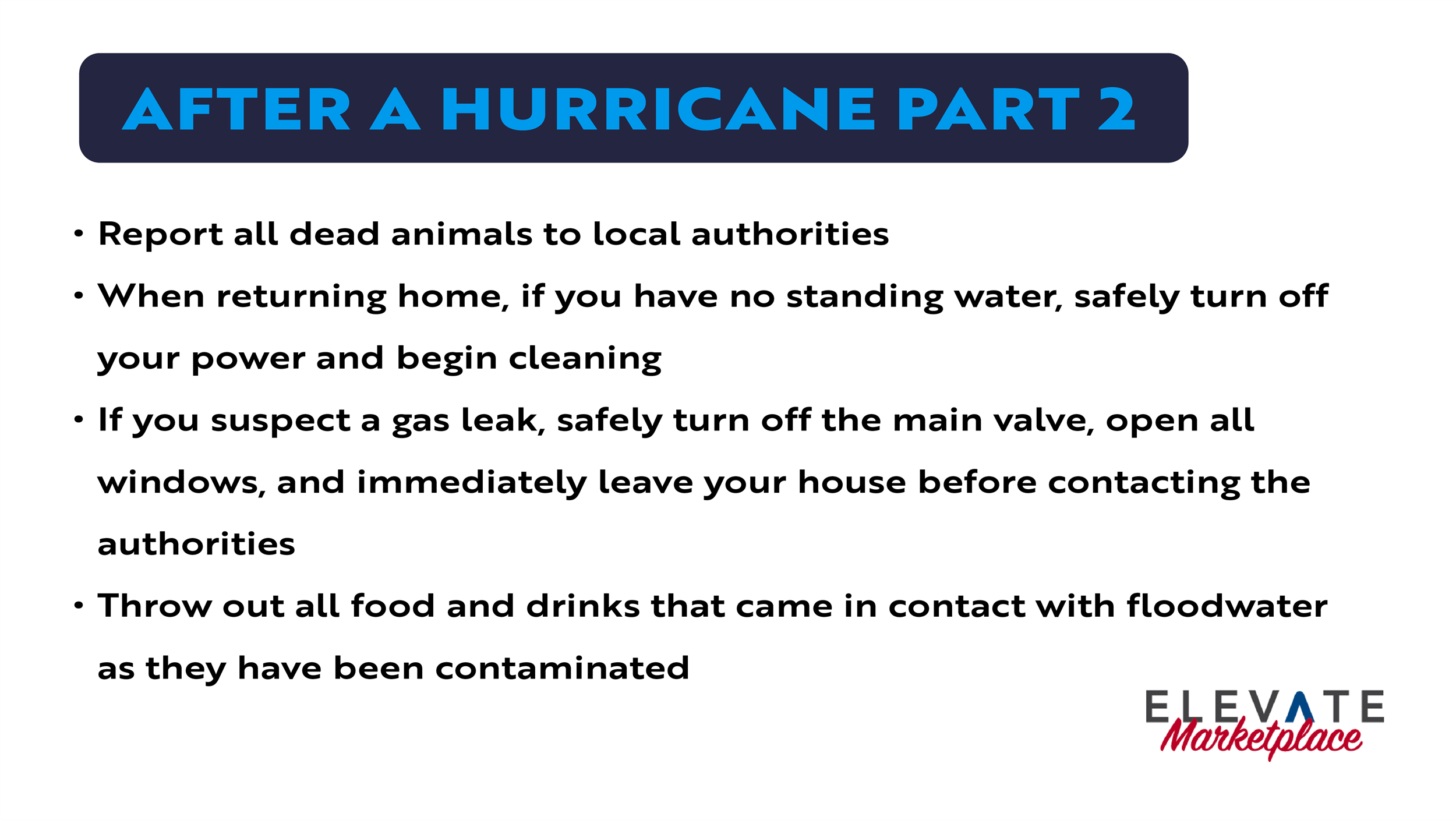
Above all else, heed the warnings of officials and authorities both during and after the storm and always act with caution to ensure that you and your family stay as safe as possible during a hurricane.




